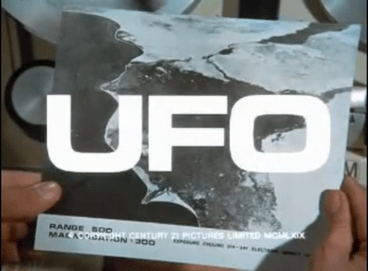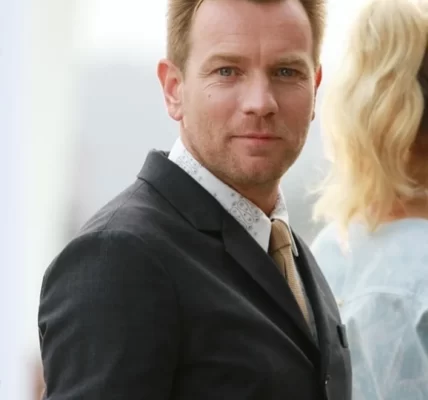With a world-leading, technologically-advanced media infrastructure, a plethora of studios, production services and unbeatable post-production facilities, Germany has much to offer international filmmakers who choose to shoot in the country…
Located in the geographical heart of Europe, Germany is not only an accessible location but boasts a diverse and versatile landscape. From its stunning mountains and valleys to urban hubs like Berlin and Munich, the country also houses medieval ruins, castles, industrial centres and contemporary architecture, that have provided stunning backdrops to films from Chitty Chitty Bang Bang to The Bourne Ultimatum. But it’s not just the country’s physical charms that have tempted filmmakers from around the world, as it offers specific and comprehensive support to productions large and small.
The German Federal Film Board (FFA) is an institution incorporated under public law, and is tasked with promoting German cinema and improving the structure of the country’s film industry, as well as supporting its economy and working towards the alignment and coordination of production support by the federal government and regional states.
It is also responsible for the performance of the German Federal Film Fund (see below), and oversees funding in various areas including production, script, distribution, exhibition and promotion. For more information, visit www.ffa.de
Financial Incentives
According to The Hollywood Reporter, Germany’s tax incentive for film shoots brought in almost half a billion dollars in production during 2010. The main production incentive is via the German Federal Film Fund (DFFF). Established in January 2007, this is a grant controlled by the German Federal Commissioner for Culture and Media, and provides an upfront tax rebate of between 16 to 20 per cent of production costs in the country.
In the past four years, the DFFF has backed over 400 productions, with well over $300m in incentives, injecting around $2bn into the German production industry. And in 2010 alone, the DFFF backed 80 features, including Paul W. S. Anderson’s Three Musketeers reboot, David Cronenberg’s Dangerous Method and Liam Neeson’s thriller Unknown.
Any recipient of DFFF funding must fulfil a variety of different requirements, including a guarantee that at least 25 per cent of the production costs must be spent in Germany (20 per cent if production costs are higher than €20m). If German production costs make up at least 35 per cent of total costs, however, producers can request to increase the grant ceiling from €4m to €10m. For more information, visit www.dfff-ffa.de
It’s also worth noting that the film-finance calculator found on NRW.GermanFilmFinance.com allows producers to see whether their project will pass these tests, and can also estimate the individual grant that project is likely to receive. Additionally, there are a multitude of film-financing structures and funding institutions located throughout Germany, which cover a variety of production needs. These include the seven main regional funds: Filmboard Berlin-Brandenburg; FilmFernsehFonds Bavaria, FilmFörderung Hamburg; Filmstiftung North Rhine-Westphalia; MDM; Mitteldeutsche Medienförderung; MFG; Filmförderung Baden-Württemberg; and nordmedia Medienförderung Lower Saxony/Bremen. Umbrella organisation Focus Germany was established in 1990 to oversee all of these funding bodies, and is also able to supply help and advice for every aspect of German production, from location research to post-production, promotional support and film festival support. www.germanfilms.de
Tax Shelters
A relatively new way for filmmakers to benefit from shooting in Germany is to take advantage of tax shelters. German tax law allows investors in a German company to take an immediate tax deduction on their investments—even if the film they are investing in has not yet gone into production. And, unlike tax laws in most other countries, it doesn’t depend on the film being shot locally or employing local personnel; German law just requires that the film is produced by a German company that owns its copyright and also shares in any future profits.
For any international studio, this is a near-perfect arrangement. By arranging to seal the film’s copyright to a German company—usually with production and distribution service agreements that effectively limit them to temporary ownership—this opens the door to all of the financial advantages offered by the country’s tax shelters. The studio can then immediately lease the movie back, and can repurchase it at a later date.
With their 2001 action movie Lara Croft: Tomb Raider, for example, Paramount sold the copyright to German investors for $94m, then repurchased the film for $83.8m in lease and option payments.
Production Facilities
Germany is home to full-service production facilities and major international studios, such as Studio Babelsberg (read more about Babelsberg in our studio focus here).
A recent addition to Germany’s studio landscape is the Pinewood Studios Group, which has recently been identifying and taking opportunities to extend its brand to other global locations. It now has a presence in Canada, Malaysia, the Dominican Republic, the United States and, through a joint venture with Studio Hamburg, in Germany.
With Germany’s world-class filmmaking infrastructure, historical locations and expanding pool of talent, a Pinewood spokesman explained that it “made sense for Pinewood to have a presence in the country and gives it a hub in mainland Europe”. The new venture, Pinewood Studio Berlin Film Services, provides European and International filmmakers with a full range of production service opportunities. It has been set up to take charge of the entire physical production of a shoot and all aspects of post — in essence to act as an experienced co-producer. It offers a full range of support services, including access to German financial incentives and a team of English-speaking technicians highly experienced in dealing with international productions. It also handles everything from location-scouting to crew and equipment requirements, through to legal, accounting and payroll advice.
Pinewood Studio Berlin Film Services offers productions state-of-the-art film and TV studios. It has 10 stages in Berlin and 11 in Hamburg, ranging from 6,000 to 26,000 sq. ft., together with first-class accommodation and support facilities, and an infrastructure geared up to meet the needs of any size and type of film production.
It’s real USP though, is that it offers producers access to Studio Hamburg’s vast experience and in-depth knowledge of filmmaking in every region in Germany, together with the Pinewood Studios Group’s international leverage and experience in producing feature films. www.pinewoodstudioberlin.com
Case Study: Hanna
As a recent report by Nick Goundry in the Location Guide (www.thelocationguide.com) reveals, German locations played a major role in director Joe Wright’s recent thriller, Hanna. The landscape influenced the filmmakers to such a degree that scenes were rewritten specifically to include them.
One such location was Spreepark, an abandoned museum park in northern Berlin, which appears in the film’s climactic scenes. As Markus Bensch, production executive at Studio Babelsberg, explains: “After having seen the Spreepark, [an original] museum meeting [sequence] got a major rewrite mainly for the reason that no scriptwriter could imagine a place like that in the middle of Berlin and no producer would agree to build such a place—good for us it just stood there!” Although it took two months of negotiations to secure the Spreepark for the production, everyone who has seen the film can appreciate that it was more than worth it for the final on-screen impact.











